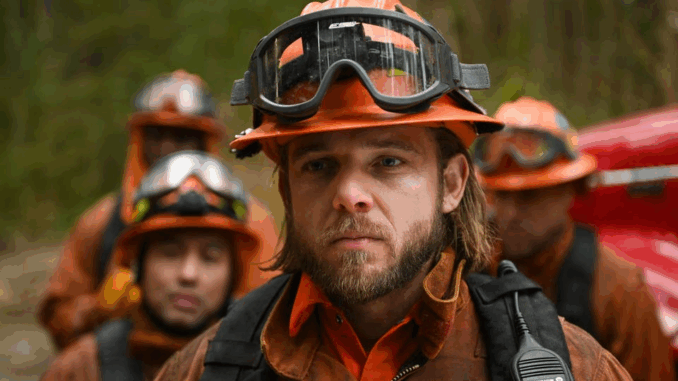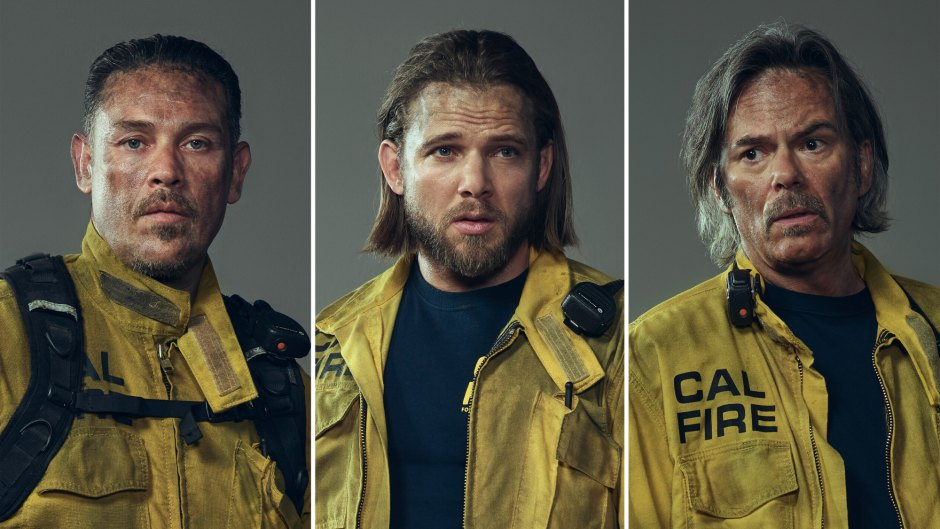
The Emotional Wildfires Behind the Flames
When audiences tune into Fire Country, they expect to see roaring blazes, daring rescues, and dramatic action. But what sets this CBS hit series apart is not just the danger faced by its characters—it’s how the show intimately explores the psychological toll of firefighting. In a landscape crowded with action dramas, Fire Country dares to peel back the emotional armor of its heroes and expose the fragile humanity beneath.
At the heart of the show is Bode Donovan (played by Max Thieriot), an inmate-turned-firefighter whose internal struggles often burn as hot as the wildfires he fights. His journey offers a lens through which the audience confronts trauma, guilt, and the complex path toward redemption. But Bode’s story is just one thread in a tapestry of emotional warfare fought by the entire Cal Fire crew.
The Lingering Scars: How Trauma Shapes Every Character
Trauma in Fire Country is not a side note—it’s the foundation. Every character carries emotional baggage that influences their decisions under pressure. For Bode, it’s his guilt over the death of his sister, his incarceration, and his strained relationship with his parents. For Jake Crawford, it’s the burden of loyalty versus resentment. For Chief Sharon Leone, it’s the weight of leadership in the face of personal health battles and family fractures.
What makes Fire Country exceptional is its refusal to romanticize trauma. Firefighters are not portrayed as unbreakable heroes—they’re vulnerable, reactive, and deeply human. Episodes often depict characters struggling to sleep, snapping at loved ones, or questioning their worth. These are the ripple effects of trauma, and the series handles them with sobering authenticity.
Rather than treating mental health as a “very special episode,” Fire Country weaves it into the narrative fabric. It shows how unresolved trauma festers: Bode’s impulsiveness, Jake’s need for approval, Eve’s guardedness—all symptoms of pain that hasn’t been properly processed.
Brotherhood Forged in Fire
The Cal Fire unit is more than a workplace—it’s a surrogate family. One of the most compelling aspects of Fire Country is how it portrays brotherhood, not just as camaraderie, but as a survival mechanism.
In a job where lives depend on absolute trust, bonds form fast and deep. But trust is fragile, especially when tested by past betrayals, as seen in the tension between Bode and Jake. The show handles these relationships with nuance—highlighting how grudges and forgiveness can coexist in environments of extreme pressure.
Brotherhood here is messy. It’s built not just through shared victories, but through conflict, vulnerability, and resilience. Whether it’s dragging each other out of burning buildings or dragging each other through emotional meltdowns, the men and women of Fire Country embody a complicated love rooted in necessity and mutual pain.
The depiction is also inclusive: women like Eve Edwards and Gabriela Perez are integrated into the team not as tokens, but as equal contributors to this emotional ecosystem. The brotherhood is not a boy’s club—it’s a fire-forged fellowship.
Redemption Through Service: A Theme that Burns Bright

Bode Donovan’s storyline is perhaps the most compelling redemption arc currently on network television. As a convict turned inmate firefighter, his very presence challenges societal perceptions of justice, rehabilitation, and self-worth.
Unlike many redemption stories that end with a grand act of sacrifice, Fire Country takes the long road. It’s not one fire that redeems Bode—it’s every small choice he makes. It’s in the moments he holds back his anger, admits fault, puts someone else first, or resists an old habit.
What’s striking is that the show doesn’t offer clean victories. Even when Bode does the right thing, he’s not always rewarded. His past lingers like smoke—never fully gone. This realism makes his journey relatable. Redemption, Fire Country suggests, isn’t a destination. It’s a process. A daily decision to rise above.
More broadly, the series suggests that service to others is a pathway to healing. Whether it’s inmates trying to find dignity or veterans coping with civilian life, firefighting becomes a metaphor for transformation—using one’s pain to protect others.
The Cost of Heroism: When Duty Clashes with Identity
Fire Country doesn’t shy away from the contradictions inherent in heroism. Characters are asked to sacrifice personal dreams, relationships, and even morality in service to a higher cause. This sacrifice often leads to existential questioning: Who am I without this job? Do I deserve happiness? Is saving others a way of avoiding saving myself?
These are the kinds of questions Bode wrestles with, but he’s not alone. Sharon faces a terminal illness while trying to hold a team together. Vince Donovan, Bode’s father, hides his grief behind command. Jake battles imposter syndrome and survivor’s guilt.
Even the job itself becomes a character—unforgiving, addictive, and ever-demanding. It gives identity but also strips it away. And Fire Country doesn’t let its characters—or its audience—look away.
Why This Matters: Television’s Role in Destigmatizing Mental Health
By taking its emotional stakes as seriously as its physical ones, Fire Country does more than entertain. It normalizes the discussion of mental health in professions where toughness is idolized and vulnerability is often punished.
This has real-world impact. Firefighting communities have historically struggled with high rates of PTSD, depression, and suicide. By showing that even the bravest can break—and recover—Fire Country sends a powerful message: asking for help is not weakness. It’s heroism of a different kind.
Max Thieriot’s commitment to portraying these issues honestly stems from his real-life experiences as a volunteer firefighter. His dual role as actor and creator allows the series to bridge the gap between dramatization and lived reality.
Final Thoughts: The Fire Inside
At its core, Fire Country is a show about battling the blazes that threaten to consume us from within. Whether it’s guilt, regret, longing, or fear—each character must learn how to navigate their personal wildfires just as deftly as the literal ones.
Through layered writing, authentic performances, and unflinching emotional honesty, Fire Country invites us to rethink what heroism looks like. It’s not just pulling someone from the flames—it’s choosing to face your own, day after day.
